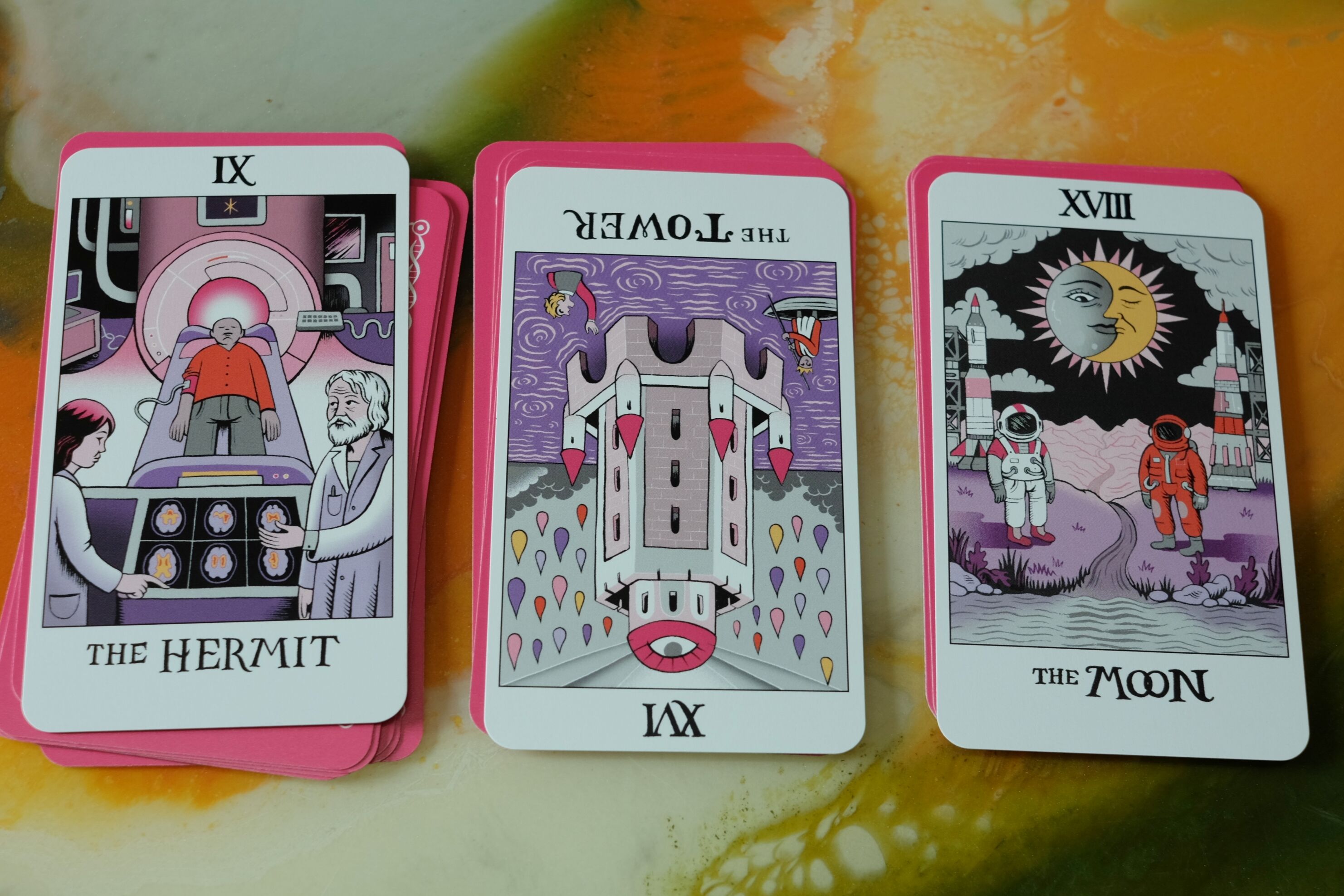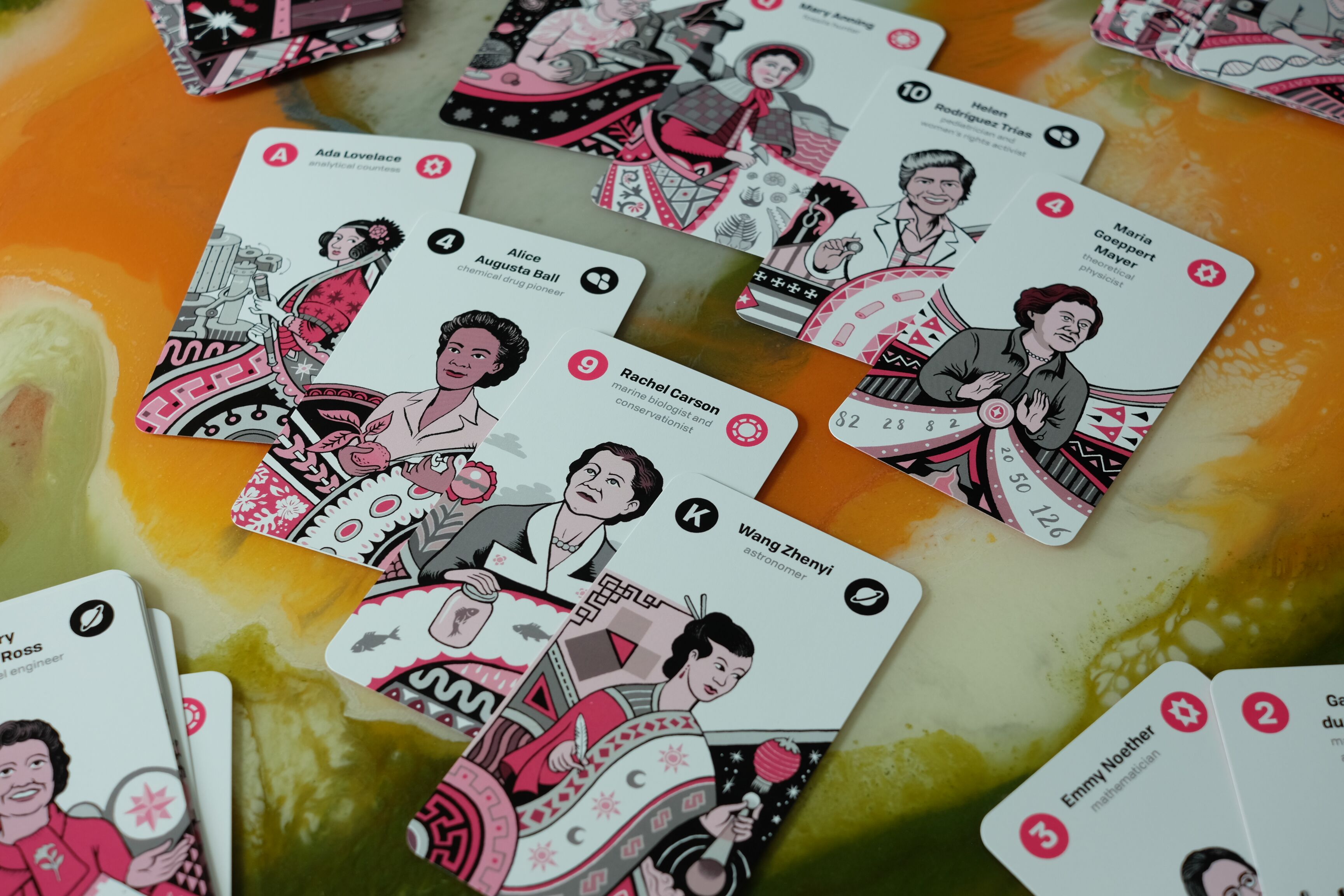Here's why we're making a science tarot deck
It's not a typical tool for science engagement, but we think it has potential
Illustrated by Matteo Farinella, Designed by Allan Lasser
You might have seen that Massive is working on a Women of Science Tarot Deck. After a successful Kickstarter campaign, I've spent most of my weekends drawing science-themed symbolic illustrations -- and I couldn’t be happier about it!
Now, some of you may ask (and have asked) “why are you mixing science and tarot? Isn’t Tarot all about magic and occult stuff?” Initially, when my friend Nadja suggested the idea, I asked myself the same question. Like most people, I associated tarot with divination. But the tarot actually started as a playing cards deck, used since the mid-15th century in various parts of Europe. In fact, in Italy we still use the 4 tarot suits (spades, wands, coins and cups) as regular playing cards, without any magical associations. Only later, in the 18th century, people started using tarot cards for divination and magic.

Part of me is just really excited about updating this ancient tradition for our modern scientific culture. After all, the cards' meaning evolved throughout history and I don’t see why we shouldn’t be allowed to do it once more. But, as a science communicator, I also think this is a great opportunity to reach a whole new audience. In particular, I have been thinking a lot lately about how scientists should engage with spirituality (especially after reading this fascinating comic by Jordan Collver and watching this conversation on Stated Casually). I grew up atheist (or religious-free, as I prefer to say) and I always had a pretty aggressive attitude toward any spiritual beliefs. But I now understand the value of a more neutral/grey zone (or ‘decompression chambers’ to use Jon Perry’s beautiful metaphor). If we require people to reject their whole spiritual identity in order to even start reading about science then we are excluding a whole LOT of readers! A more inclusive science communication should provide some in-between spaces where people feel comfortable exploring science, without feeling immediately challenged or attacked.

I really hope that a science tarot deck can play this kind of role: a space for people who do not traditionally identify as science geeks to engage with scientific concepts in a playful and nonjudgemental way. And also, a good opportunity to challenge some stereotypes of what science "should" be and what scientists look like by celebrating the inspirational women included in the deck.